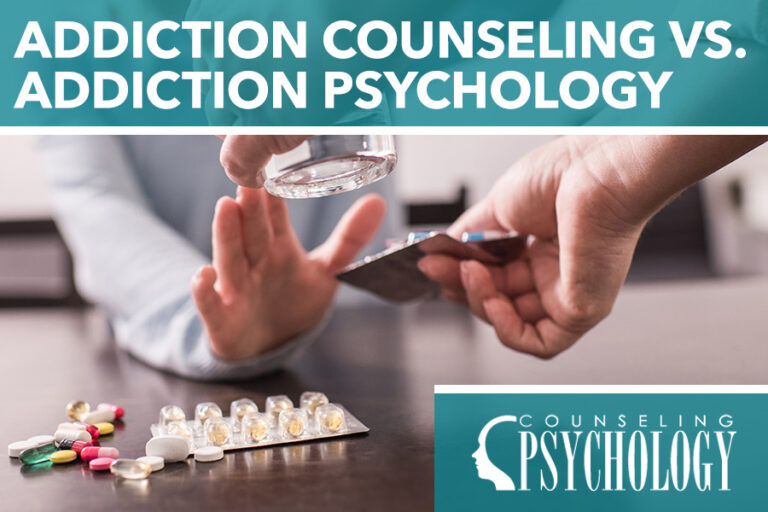Addiction Counseling vs. Addiction Psychology: Degrees, Careers, and Key Differences

For those passionate about helping individuals overcome substance use disorders and behavioral addictions, both addiction counseling and addiction psychology offer rewarding career paths. While these fields share a common mission, they differ significantly in educational requirements, theoretical approaches, and professional roles. This comprehensive guide explores the key differences and similarities to help you choose the path that best aligns with your career goals.
Understanding the Fields: Core Definitions
Addiction Counseling focuses on direct therapeutic support for individuals struggling with substance use disorders and behavioral addictions. Counselors typically provide practical guidance, develop treatment plans, facilitate individual and group therapy sessions, and connect clients with community resources.
Addiction Psychology approaches addiction through a broader psychological lens, examining the underlying mental health conditions, cognitive processes, and behavioral patterns that contribute to addiction. Psychologists may conduct assessments, provide psychotherapy, engage in research, and develop treatment protocols.
Both fields are essential components of comprehensive addiction treatment, often working collaboratively within treatment teams to address the complex nature of addiction.
Educational Pathways: Degrees and Requirements
Addiction Counseling Education
The educational pathway for addiction counseling typically includes:
- Entry-Level: Associate degree in addiction studies or certificate in substance abuse counseling
- Standard Qualification: Bachelor’s degree in addiction counseling, substance abuse counseling, or related field
- Advanced Practice: Master’s degree in addiction counseling or counseling with addiction specialization
- Certification: State-specific addiction counselor certification (e.g., CADC, LADC)
Many states have tiered certification systems based on education level, supervised clinical hours, and examination scores. For example, a Certified Alcohol and Drug Counselor (CADC) may require a bachelor’s degree plus 2,000-4,000 supervised clinical hours.
Find out more about addiction counseling degrees.
Addiction Psychology Education
The pathway for addiction psychology typically involves:
- Minimum Requirement: Master’s degree in clinical psychology with addiction focus
- Full Qualification: Doctoral degree (Ph.D. or Psy.D.) in clinical psychology or counseling psychology with addiction specialization
- Licensure: State psychology license plus potential specialized addiction certifications
- Board Certification: Optional board certification in addictions from the American Board of Professional Psychology
Becoming an addiction psychologist requires significantly more education, with doctoral programs typically taking 5-7 years followed by a year-long internship and often post-doctoral training.
Comparison Table: Addiction Counseling vs. Addiction Psychology
| Factor | Addiction Counseling | Addiction Psychology |
| Minimum Education | Associate/Bachelor’s degree | Doctoral degree (typically) |
| Typical Degree Timeline | 2-4 years | 7-9 years (including doctoral study) |
| Licensing Requirements | State certification + clinical hours | State psychology license + specialized training |
| Primary Treatment Focus | Recovery support, relapse prevention, practical coping strategies | Assessment, diagnosis, psychotherapy, treating co-occurring disorders |
| Theoretical Orientation | Practical, skills-based approaches | Evidence-based psychological interventions |
| Common Work Settings | Treatment centers, community agencies, outpatient clinics | Hospitals, private practice, research institutions, treatment centers |
| Average Annual Salary | $47,000-$60,000 | $75,000-$110,000+ |
| Ability to Diagnose | Limited (varies by state) | Yes |
| Ability to Prescribe | No | No (except in specific states with additional training) |
| Research Component | Minimal | Often significant |
| Job Growth Outlook | 22% (much faster than average) | 14% (faster than average) |
Key Differences in Professional Practice
Scope of Practice
Addiction Counselors typically:
- Provide direct client counseling services
- Facilitate group therapy sessions
- Develop treatment and recovery plans
- Conduct substance use assessments
- Offer family education and support
- Connect clients with community resources
Addiction Psychologists typically:
- Conduct comprehensive psychological assessments
- Diagnose substance use and co-occurring mental health disorders
- Provide evidence-based psychotherapy
- Design and implement treatment protocols
- Supervise counseling staff
- Conduct research on addiction etiology and treatment
Theoretical Approaches
Addiction counseling often emphasizes practical recovery models and evidence-based approaches like:
- 12-step facilitation
- Motivational interviewing
- Cognitive-behavioral therapy for addiction
- Relapse prevention techniques
- Community reinforcement approaches
Addiction psychology incorporates broader psychological theories and interventions such as:
- Psychodynamic approaches to understanding addiction
- Neuropsychological assessment and intervention
- Advanced cognitive-behavioral protocols
- Treatment of complex co-occurring disorders
- Trauma-informed therapeutic approaches
Career Opportunities and Work Settings
For Addiction Counselors:
- Substance use treatment centers
- Outpatient addiction clinics
- Community mental health agencies
- Employee assistance programs
- Correctional facilities
- Recovery housing programs
For Addiction Psychologists:
- Hospital-based addiction treatment programs
- University research departments
- Private practice specializing in addiction
- Government agencies developing policy
- Pharmaceutical companies conducting clinical trials
- Administrative leadership in treatment organizations
Salary and Job Outlook
According to the Bureau of Labor Statistics and industry reports:
Addiction Counselors:
- Median annual salary: $48,520 (2024 data)
- Entry-level salary range: $35,000-$42,000
- Experienced counselor salary range: $55,000-$65,000
- Projected job growth: 22% through 2032
Addiction Psychologists:
- Median annual salary: $89,290 (2024 data)
- Entry-level salary range: $65,000-$80,000
- Experienced psychologist salary range: $95,000-$120,000+
- Projected job growth: 14% through 2032
Both fields show stronger growth projections than the national average (8%), reflecting increased recognition of addiction as a health condition and improved insurance coverage for addiction treatment services.
Choosing the Right Path: Key Considerations
When deciding between addiction counseling and addiction psychology, consider:
- Educational Investment: Are you prepared for the longer educational pathway of psychology?
- Career Goals: Do you prefer direct client work (counseling) or a mix of clinical work, assessment, and potential research (psychology)?
- Financial Considerations: Balance the higher salary potential of psychology against the significant educational costs and time investment.
- Personal Strengths: Counseling may appeal more to those who excel at building rapport and providing practical support, while psychology might suit those interested in assessment, diagnosis, and theoretical applications.
- Workplace Preference: Consider whether you prefer community-based settings (common in counseling) or medical/academic environments (more common in psychology).
The Value of Both Professions
Both addiction counselors and addiction psychologists play crucial roles in addressing the substance use epidemic. Many treatment settings employ both professionals, creating a continuum of care that benefits from the unique strengths of each approach:
- Counselors often excel at building rapport with clients and providing accessible recovery support
- Psychologists bring specialized expertise in assessment, diagnosis, and treatment of complex cases
Making Your Decision
Choosing between addiction counseling and addiction psychology ultimately depends on your educational goals, career aspirations, and personal preferences. Both fields offer meaningful opportunities to make a difference in addressing one of society’s most persistent health challenges.
For those seeking a faster entry into direct client care with reasonable educational requirements, addiction counseling provides an accessible and rewarding path. For those interested in the deeper psychological mechanisms of addiction, research opportunities, and a broader scope of practice, addiction psychology offers these advantages at the cost of more extensive education.
Whichever path you choose, both professions contribute vitally to helping individuals recover from addiction and rebuild fulfilling lives.



